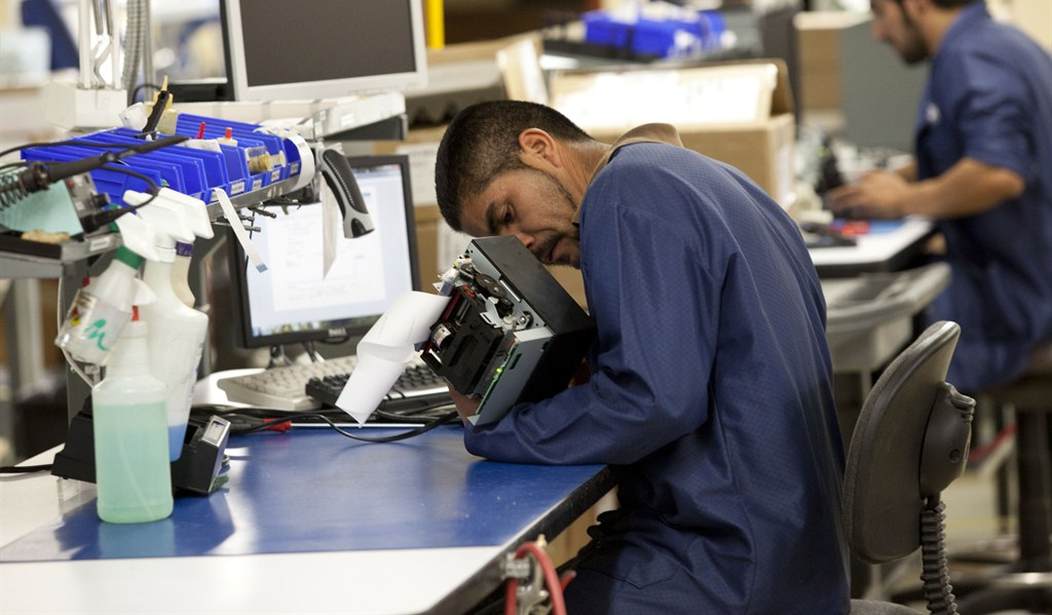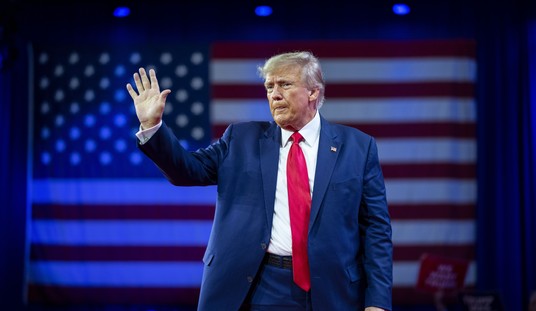To put it in today’s standard D.C. terms, Democrats sure must hate poor people.
That’s silly, of course. But there’s no doubt that Democrats are preparing to push policies that are likely to hurt struggling low- and middle-income Americans.
Both the Obama administration and the Democratic leadership in Congress have announced that their top priority when Congress returns later this month will be extending unemployment benefits and raising the minimum wage. Both policies are likely to leave more Americans jobless — especially low-income workers with few skills, the very people Democrats claim they want to help most.
Take the extension of unemployment insurance. Labor economists may disagree on the extent to which unemployment benefits increase or extend spells of unemployment, but the fact that they increase the duration of unemployment and/or unemployment levels is not especially controversial. As Martin Feldstein and Daniel Altman have pointed out, “the most obvious and most thoroughly researched effect of the existing UI systems on unemployment is the increase in the duration of the unemployment spells.”
In fact, even Paul Krugman, in the days when he was an actual economist rather than a partisan polemicist, wrote in his economics textbook:
Public policy designed to help workers who lose their jobs can lead to structural unemployment as an unintended side effect…. In other countries, particularly in Europe, benefits are more generous and last longer. The drawback to this generosity is that it reduces a worker’s incentive to quickly find a new job. Generous unemployment benefits in some European countries are widely believed to be one of the main causes of “Eurosclerosis,” the persistent high unemployment that affects a number of European countries.
Recommended
President Obama’s former Treasury secretary Larry Summers estimated in The Concise Encyclopedia of Economics that “the existence of unemployment insurance almost doubles the number of unemployment spells lasting more than three months.”
It’s not hard to understand why. Incentives matter. Workers are less likely to look for work or accept less than ideal jobs as long as they are protected from the full consequences of being unemployed. That is not to say that anyone is getting rich off unemployment or that unemployed people are lazy. It’s just simple human nature that people are a little less motivated as long as there is a check coming in. Indeed, research shows that, in the weeks just before benefits run out, workers spend more hours looking for a job and are as much as three times more likely tofind jobs.
Of course, one should be careful not to overstate the effect — the overall impact on unemployment is likely to be modest. Studies suggest that the 2009 extension of unemployment benefits to 99 weeks, for example, raised the unemployment rate by 0.5 to 1.5 percentage points.
Still, that’s hardly good news. And those most likely to suffer from extending this policy are the long-term unemployed. The longer a worker stays unemployed, the more his skills deteriorate. By extending the period spent without a job, extending benefits makes it less likely that an unemployed worker will eventually find a job, and reduces the workers’ wages when they do find work. And low-income workers, with limited skills and frequent spells of unemployment, may find this a particular problem.
The second part of this one-two punch against employment is an increase in the minimum wage. Again, the overwhelming consensus among economists is that an increase in the minimum wage reduces available employment. In fairness, that consensus is not unanimous: Some studies, notably one by Princeton’s Alan Krueger and Berkeley’s David Card, suggest that at least small increases in the minimum wage have little or no impact on employment. But other economists have criticized the methodology of that study, and a comprehensive review of more than 100 papers on the minimum wage, by David Neumark and William Wascher for the National Bureau of Economic Research, found that 85 percent of them showed negative employment effects.
Given the current level of the minimum wage, the result of a small increase probably would not be catastrophic. For example, a study by Michael Hicks of Ball State University looked at the impact of the July 2008 minimum-wage increase in the United States and concluded that a 10 percent increase in the minimum wage results in a roughly 0.19 percentage-point increase in unemployment, meaning the loss of about 160,000 jobs.
But it is also important to understand that an increase in the minimum wage would not be taking place in isolation. Many businesses are already having to absorb a de facto increase in the minimum wage because of Obamacare. In 2015, businesses with more than 50 employees will have to provide health insurance to their workers or pay a $2,000–3,000 penalty. For a midsize employer that doesn’t offer insurance today, that amounts to roughly a $1 per hour increase in a minimum-wage employee’s compensation. And even those employers that provide insurance today will find their per-employee costs increasing as Obamacare drives up their premiums and requires that they provide more comprehensive and expensive insurance than they do now.
Increasing the minimum wage on top of this would almost certainly have a significant impact on employment.
Of course, Keynesians argue that extending unemployment benefits and increasing the minimum wage have a simulative effect on the economy, creating jobs. But for anyone not in total thrall to Mark Zandi’s “multiplier effect,” the evidence for such a stimulus is scant. In fact, a strong body of research suggests that, at best, spending on unemployment benefits adds only a few cents to economic growth for every dollar in outlays. Almost any other use of that money would provide more bang for the buck. There is even less evidence that minimum-wage increases are stimulative. The combination of Obamacare and a minimum-wage hike, in reality, would slow already weak economic growth.
Besides these two central proposals, Democrats are always willing to throw a few dollars to the poor in the form of increased welfare payments (witness the current debate over food stamps), but those programs, too, can discourage work. As the Cato Institute has shown, in most states the combined value of the most common welfare programs exceeds the earning potential of an entry-level job, discouraging welfare recipients from seeking those jobs and taking their first step up the economic ladder.
Democrats, then, seem to favor making poverty just a bit more comfortable rather than making serious attempts to reduce it through economic growth. The route out of poverty, and to a fulfilling and self-sufficient life, is through the dignity of work. Just 2.6 percent of full-time workers live below the poverty level, and the overwhelming majority of the poor would prefer the opportunity to stand on their own to continued dependence on government.
This year mark’s the 50th anniversary of Democrats’ declaration of a War on Poverty. Ironically, it seems as if President Obama and congressional Democrats have decided to mark the occasion by declaring a war on the poor.
This article appeared in National Review (Online) on January 1, 2014.

























Join the conversation as a VIP Member